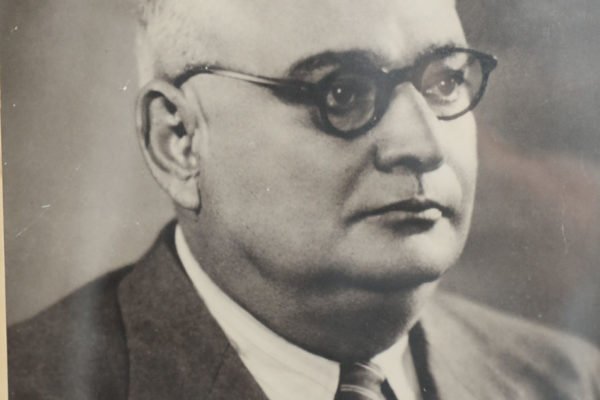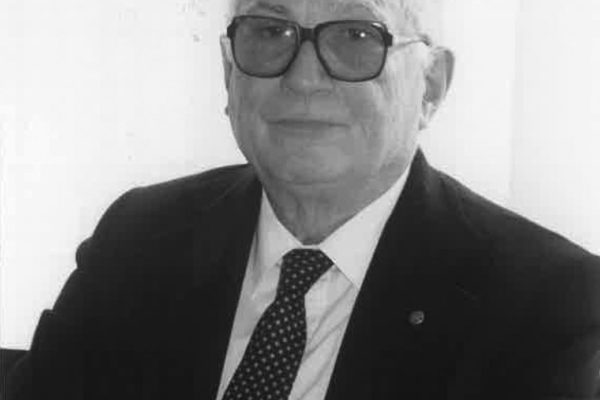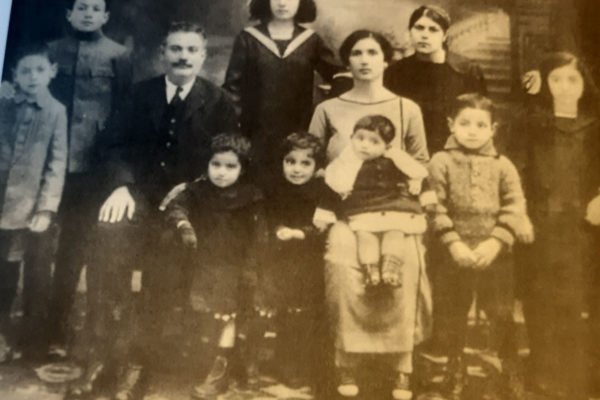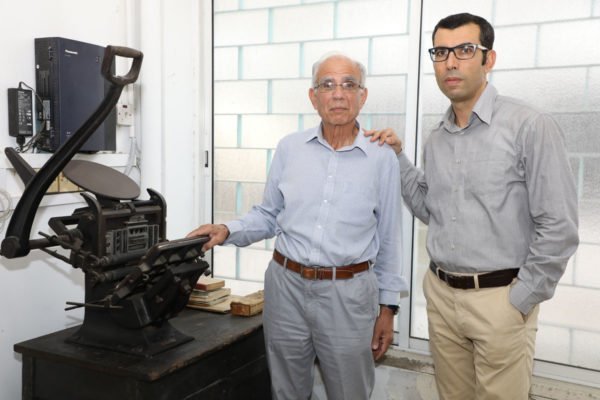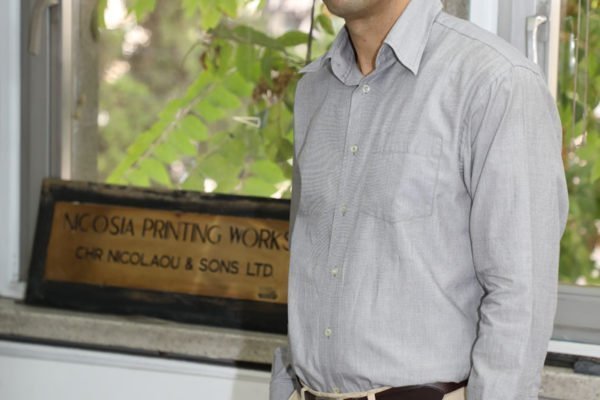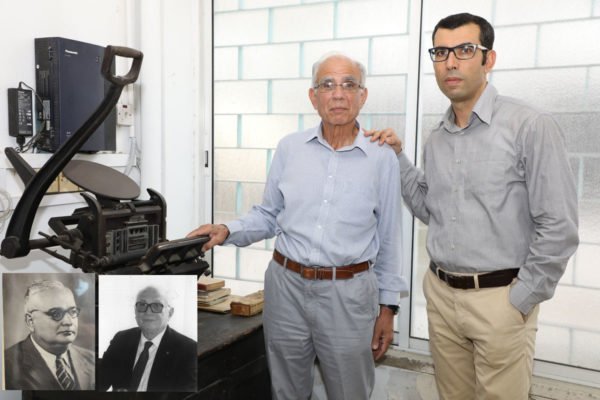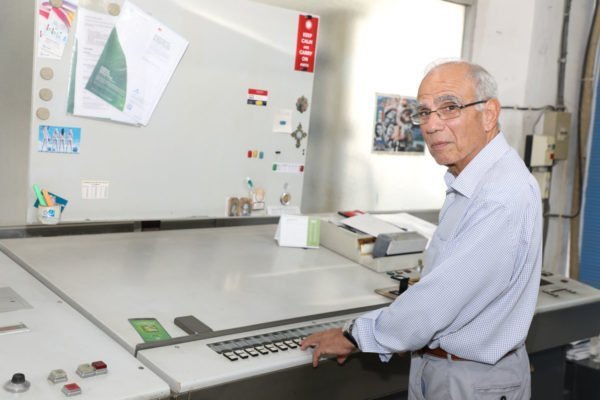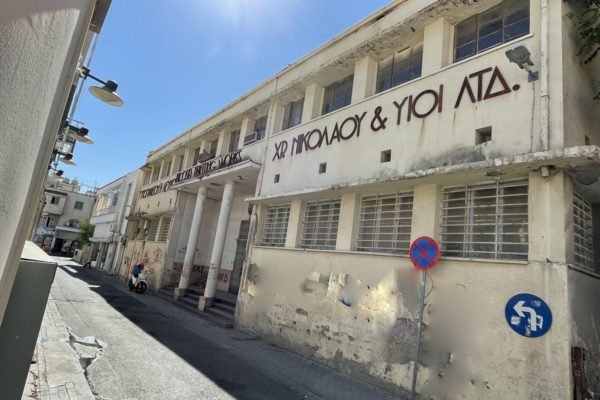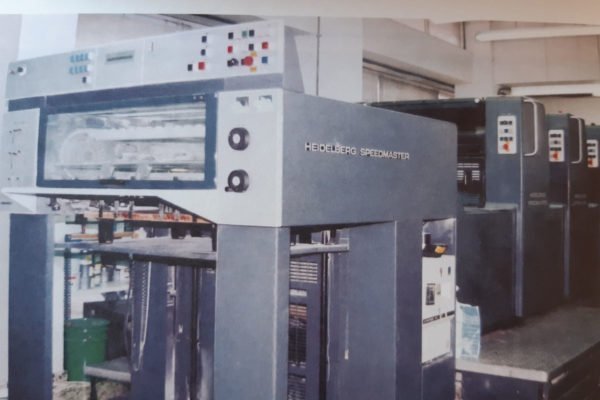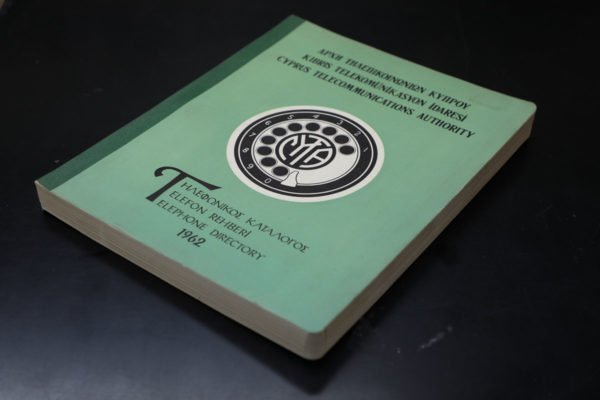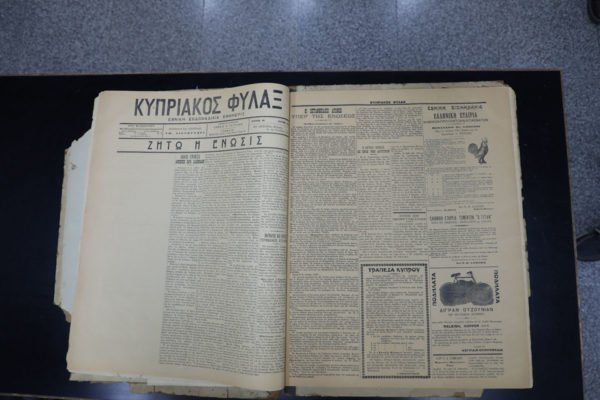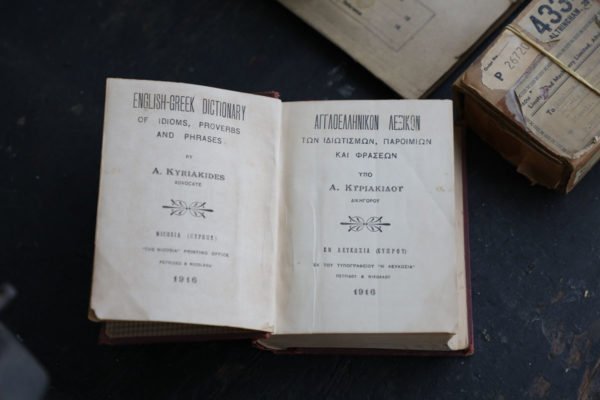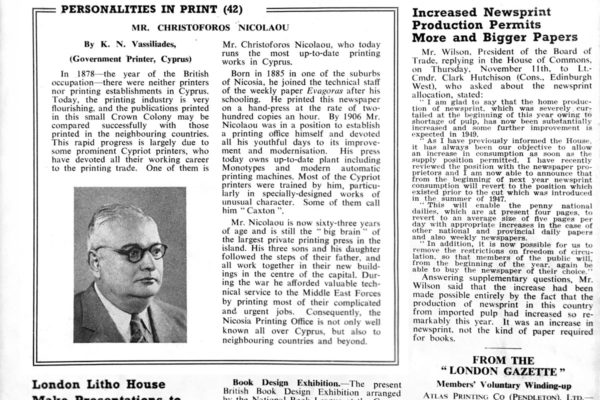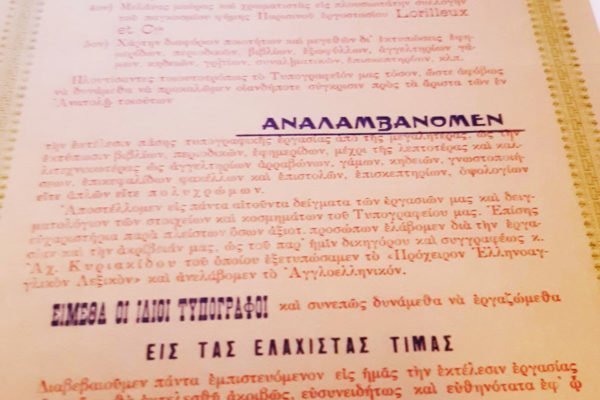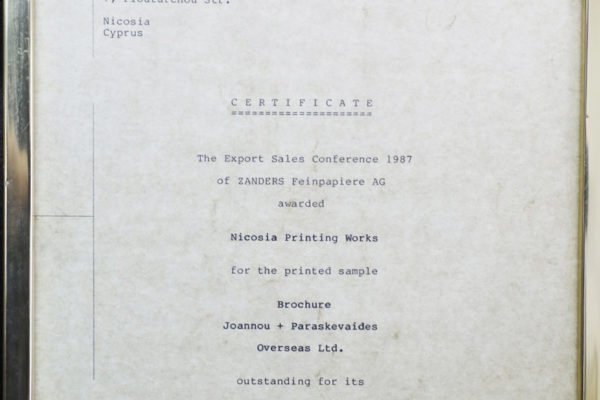
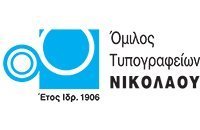
The Cyprus
pioneer printers
Nicosia Printing Works is the oldest surviving Printers in Cyprus. It was established in 1906 and essentially owned by the same family ever since.
The oldest operating printers
Nicolaou Printing Works have successfully come through over a century of life. It is the oldest operating printers in Cyprus, owned by Nicosia Printing Works, Chr.Nicolaou & Sons Ltd, with the fourth generation of the Nicolaou family following in the footsteps of the founders.
The printers was established in 1906, when two pioneers of typography in Cyprus, Christoforos Nicolaou, who was just 20 at the time and Ephraim Petrides, founded Nicosia printers. Petrides was also owner and publisher of the newspaper ‘The Cyprus Keeper’.
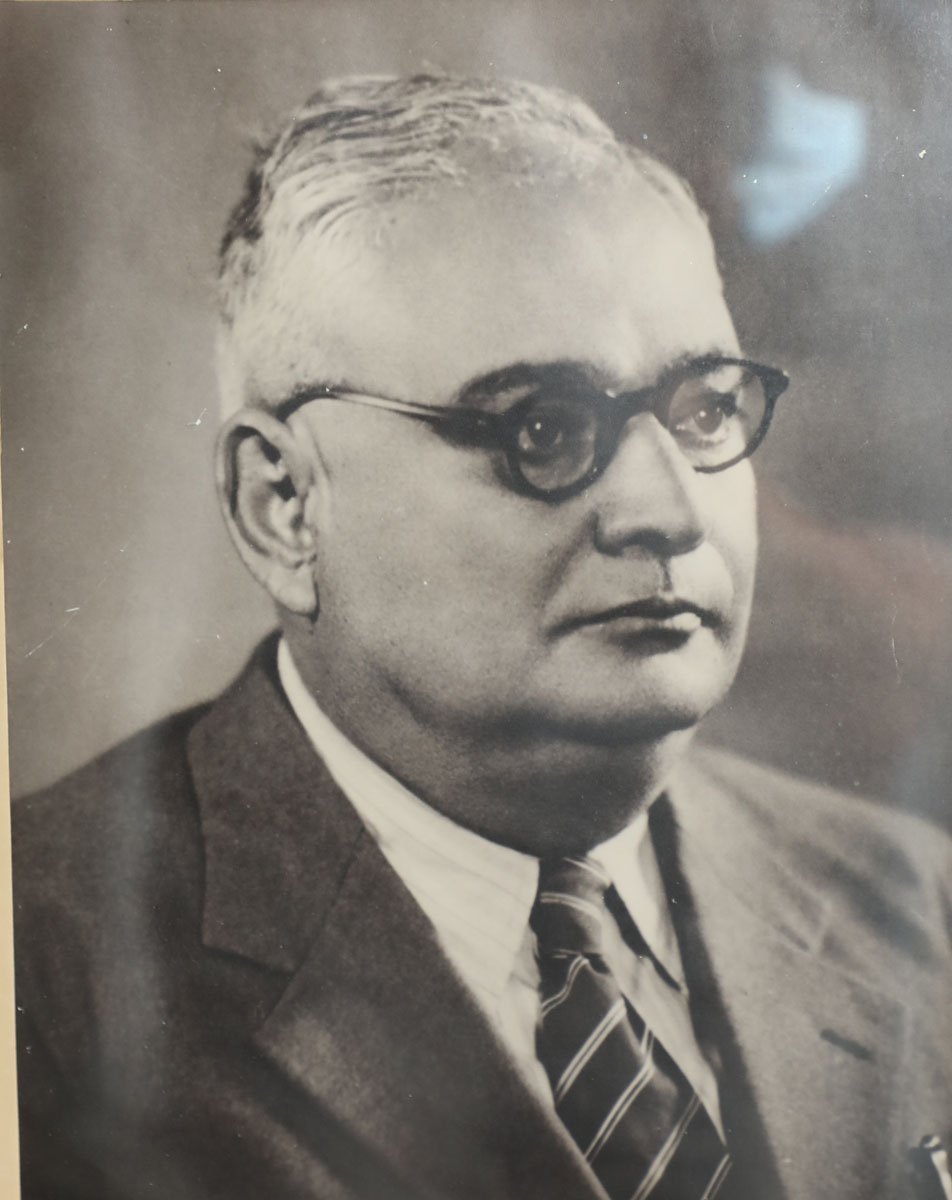
Nicosia Printing Works is the oldest operating printers in Cyprus. It all begun in 1906 when Christoforos Nicolaou, just 20 at the time, established the business.
Early steps were not easy. But the sheer hard work of founders Nicolaou and Petrides quickly built an innovative business, becoming well known beyond Cyprus, in neighbouring countries. During WW2 it provided services to the Middle East Allied Powers.
‘Nicosia’ printers was housed from 1906 to 1939 at the end of Ledras Street in the Kykkos gallery opposite the KEM transport company. The building was owned by the Kykkos Monastery. In 1939 it was re-housed in company owned facilities on Ploutarchou street in the Nicosia city walls. In 1980, the business moved again outside the walls on Dimitsanis road, in a building with the necessary specifications to house a printing shop. The previous one could not serve the needs of a new printing facility, equipped with the latest technology machines at the time.
History step by step
- In 1906 Christoforos Nicolaou partners up with Ephraim Petrides to establish the first printers in Nicosia, aptly named ‘Nicosia’. It was housed in a store at the end of Ledras Street in the Kykkos gallery opposite the KEM transport company. The building was owned by the Kykkos Monastery. Amongst other projects it printed ‘The Cyprus Keeper’ newspaper, owned by one of the partners, Ephraim Petrides.
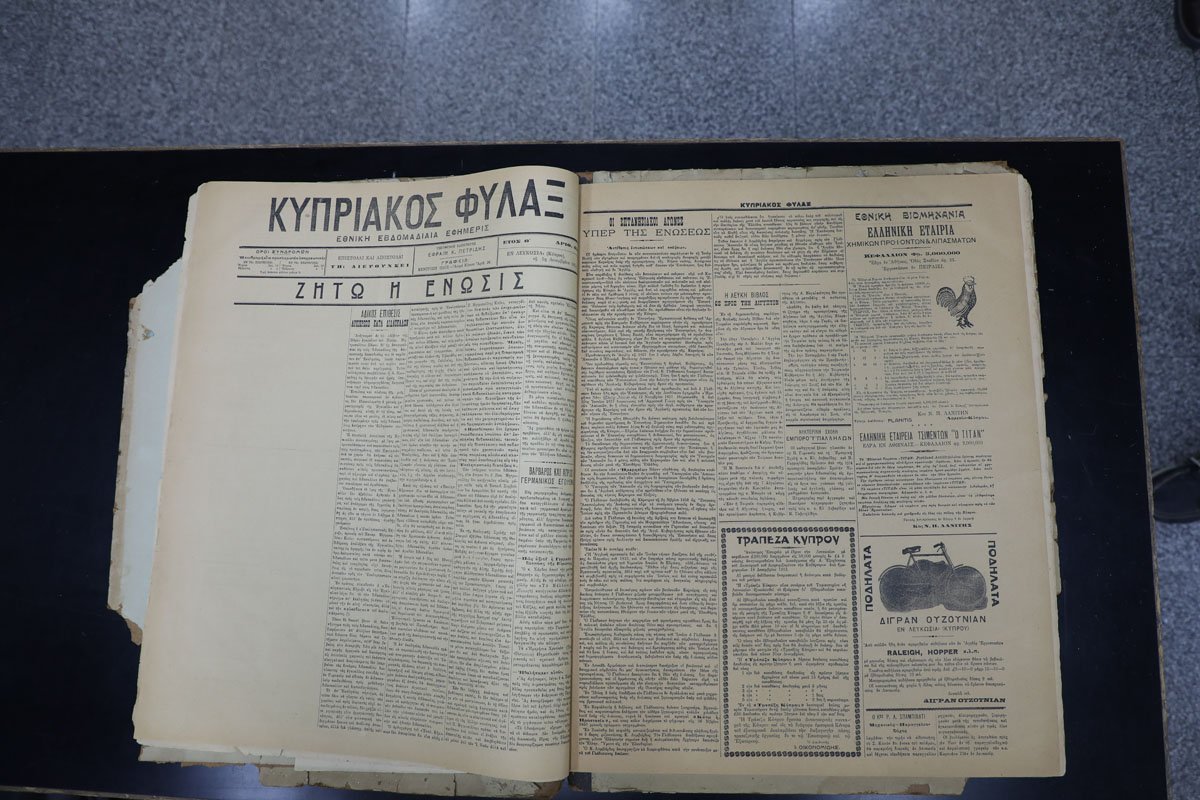
Initially, the business was owned by Chr.Nicolaou and Ephraim Petrides, the owner of ‘The Cyprus Keeper’ newspaper. Following the sudden death of Petrides and the British closing down the paper, the Petrides family sold its stocks to Chr.Nicolaou.
- 1919-1930. Unfortunately the second decade of the business was overshadowed by the sudden early death of Ephraim Petrides in 1919, at the age of 43. Christoforos Nicolaou takes over the company following this tragic event. In 1925 he buys the Petrides stocks and becomes the sole owner of the Printers, moving to reorganise the business and bring in new machinery.
In 1924 ‘The Cyprus Keeper’ owned by Petrides, closes down.
- 1931-1940. The 1930s were a time of major growth for the business, both in terms of expanding its activities, as well as hiring new staff. But the large scale expansion came after WW2 broke out in 1940, as the government gave out printing jobs to ‘Nicosia’ as it could not respond to bigger needs.A major landmark in the history of the Printers was the 1935 introduction of the silk screen machine from England for creating exercise books and accounting books.
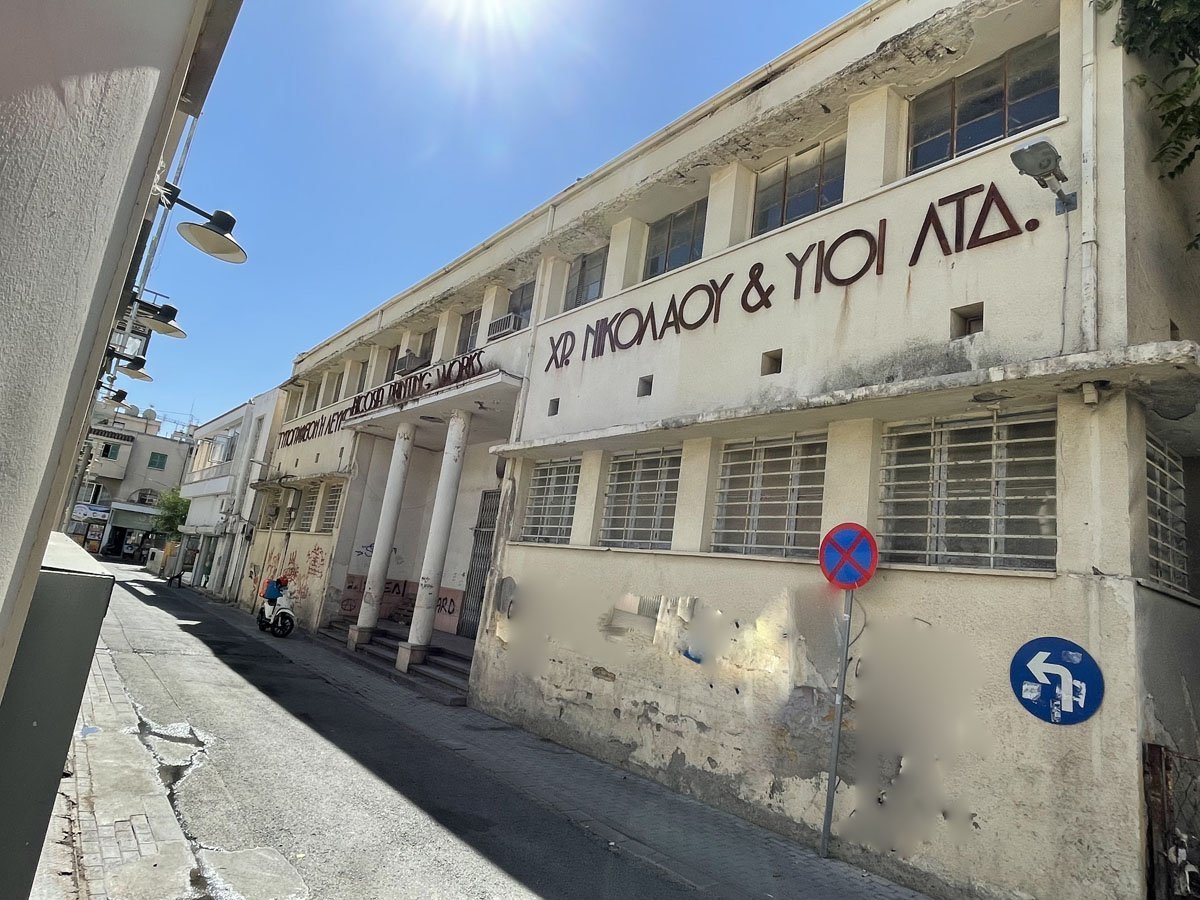
In 1939, Nicosia Printing Works moved into its own offices at Ploutarchou road, off main Ledras street. The building stands to this way, in very good condition with all its equipment and could well be turned into a printing art museum.
1939 sees yet another important moment as construction is completed of the new company owned building on Ploutarchou, a Ledra Street side road. The building remains almost unscathed to this day, including all of the equipment of the time.
- 1941-1950. During WW2, the business grows further, providing services to the area’s British army. This earned Christoforos Nicolaou a post war citation in a British printing magazine.
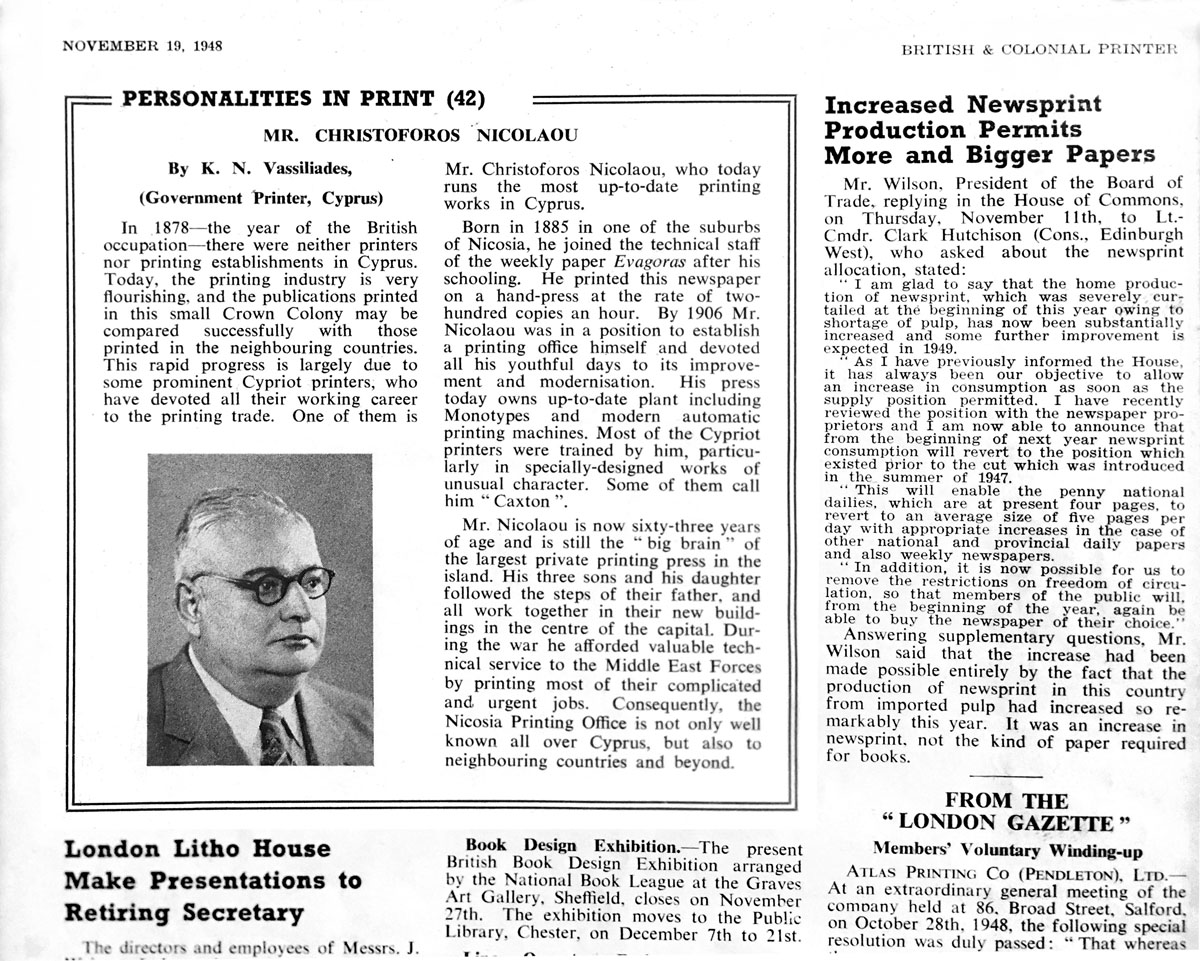
During WW2, the printers provided its services to the British army in the area. Following the end of the war, Christoforos Nicolaou earned a citation in a British printing magazine.
Following the war, Christoforos purchases monotype and linotype machines that were used in preparing the pages for printing. Automatic printing presses also replaced manual machines. The new equipment increases the printers’ production capacity.
During the same period, certain processes become marginalised, such as manual setting of pages, typesetting with tongs, pencil paging with strings and printing in manual printing presses, which was a complicated, difficult and demanding process, requiring delicate work, patience and a good sense of aesthetics. It was psychologically and physically exhausting.
- 1951-1960. Christoforos Nicolaou made all the legal arrangements for the future ownership status of the business. He forged a partnership with his three sons Nicos, Loukis and Tasos and in 1951 he created a shareholding limited company with registration number 426 and named Nicosia Printing works, Chr. Nicolaou & Sons Ltd.Christoforos passed away in 1958 following a brief illness and the company was taken over by his eldest son Nicos Nicolaou, with his brothers Loukis and Tasos as assistant managers. Essentially the business passes on to the 2nd generation of Nicolaou. Their era saw renewal with modern equipment. The quantity but mainly the quality of its work was upgraded, earning a fame as one of the most artistic, quality printing business in Cyprus. A fame maintained to this day.
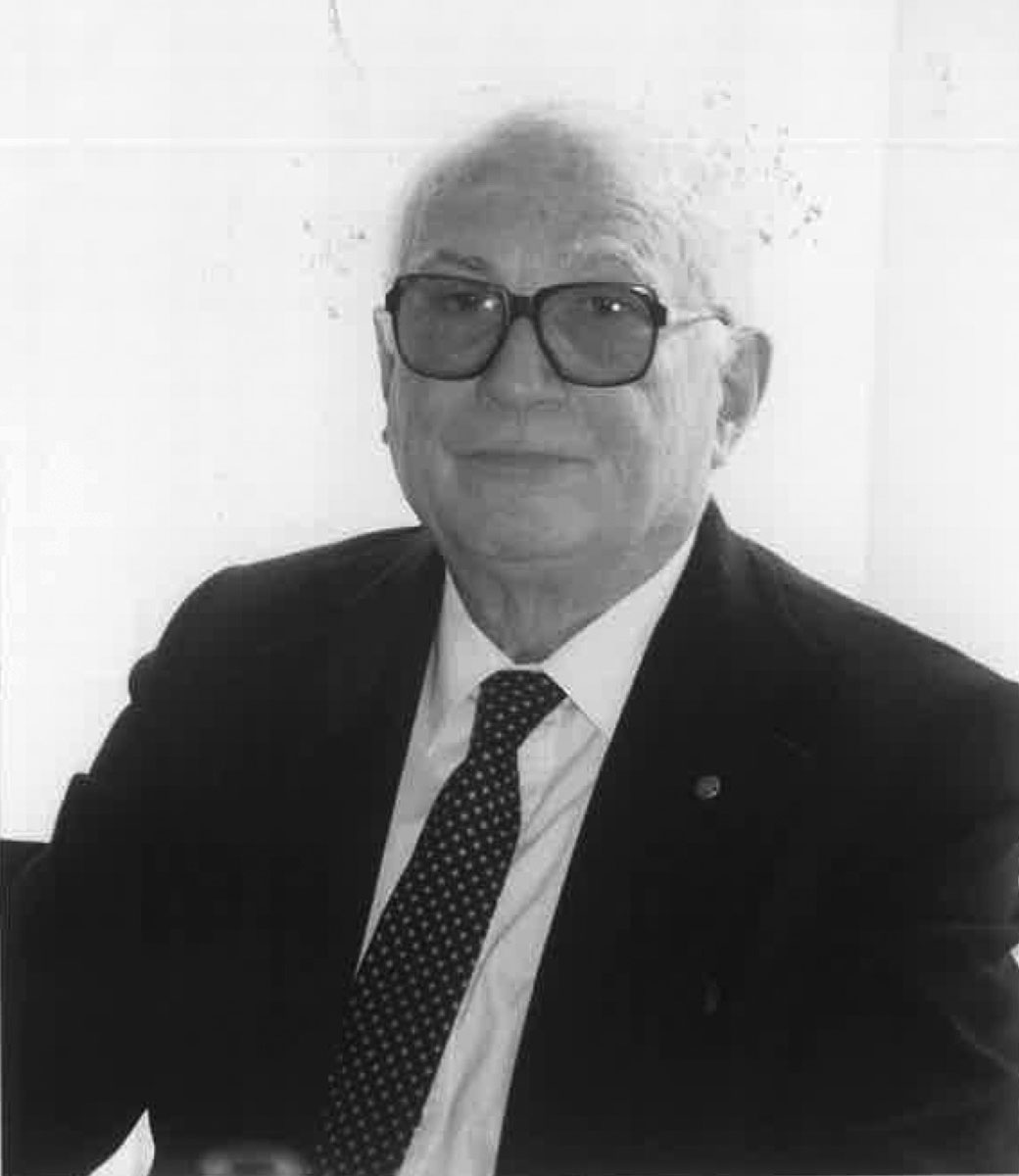
4. Nicos.Chr.Nicolaou, the oldest son of Christoforos Nicolaou, took over the business in 1958, along with his brothers Loukis and Tasos.
- 1961-1970. The independence of Cyprus in 1960 and the economic development that followed, led to the rapid growth of printing in Cyprus and Nicosia Printing works, Chr. Nicolaou & Sons Ltd was not the one to stand idly by. Using the well known printing system letterpress, it expands into lithography offset, which provides improved colour performance. With this kind of technology, the business prints coloured books, etiquettes, coloured company presentations and simply anything to do with colour. As the Ploutarchou facilities could not satisfy the modern lithography needs, the company built a brand new building outside the Nicosia walls on Dimitsanis road, developing into of the most modern printers both in Cyprus as well as the wider region.
- 1971-1980. During this decade, typography was dealing with new technological developments, mainly the replacement of lead with film. The traditional process takes a bow and is quickly abandoned. The company keeps up with this evolution and invests in new technology as well as training personnel. This technology however was short-lived, overtaken by new advancements.

With the establishment of Cyprus independence in 1960, as its work and activities grew, Nicosia Printing works, Chr.Nicolaou & Sons Ltd builds new modern facilities in the walled city of Nicosia, Dimitsanis road and develops into one of the most modern printers in Cyprus, as well as the wider region.
- 1981-1990. The 80s marks a new significant change in the company’s ownership status. In 1982 Loukis and Tasos leave the business and their stocks are bought by Nicos Nicolaou’s son Christoforos. But this change does not affect the Nicolaou philosophy of introducing every new technological development, always aiming towards quality and providing services that cover as many printing needs as possible. With that in mind, the biggest achievement of the company during this decade was the printing, personalisation and delivery of chequebooks to banks in just 24 hours.

The 80s mark a major change in the printers’ ownership status. Loukis and Tasos decide to leave the business and their stocks are bought by Christoforos, the son of Nicos.Chr.Nicolaou
- 1991-2010. In 1998, almost a century after the establishment of the company, the family’s fourth generation comes in. After completing his studies, Nicos Nicolaou, son of Christoforos, returns home and joins the business. In 1990s, the advent of personal computers drastically changes the situations. Businesses now require new types of documents. Nicosia Printing works, Chr. Nicolaou & Sons Ltd rises to the occasion of the time and adapts to the necessary changes. Along with Compuform Ltd they establish a new company, Printaform Ltd, which takes over the printing of cheques, as well as the new documents needed by computers.
In general terms, the 20 years in question were packed with major technological upgrades of computers, resulting in the design of document being simplified as well as upgraded in quality. This in turn led to significant growth in advertising in publication printing in Cyprus. In order to provide better service to its clients, satisfying the needs of the market, the company made further upgrades by purchasing new printing machines.
- 2010-today. The digital printing era begins, gradually encroaching on the need for offset printing. The rapid development of digital technology but also the financial crises of this period led to a major reduction of paper use. Digital communication and icloud take over from print communication and document storage.Once again, Nicosia Printing works, Chr. Nicolaou & Sons Ltd runs with the times, following developments and market needs. This dynamic organisation proceeds with the necessary changes, making sure it maintains its leading position.
Today’s leadership
The third and fourth Nicolaou generation is at the helm today. Christoforos Nicolaou is president and his son Nicos Nicolaou is CEO.
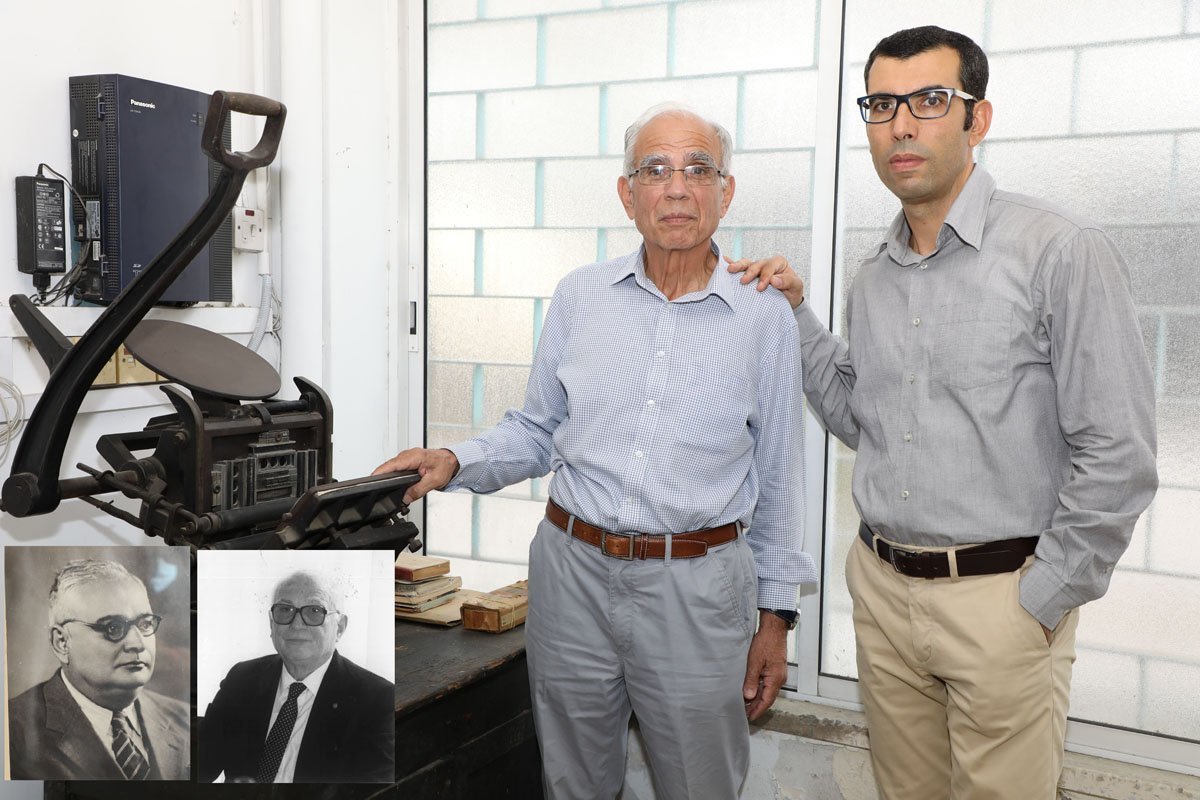
In 1998, almost a century after the business was established, the 4th generation comes to the fore. Nicolas Nicolaou, son of Christoforos.Chr.Nicolaou.
Historic publications
During this 106 year course, Nicosia printing works has taken up a series of historic publications, many of which have left an indelible mark. And there’s been many of them.
Amongst them, we do have to note the Kyriakides diary in the 1910 decade, the Island of Cyprus History by Archimandrite Kyrillos and the first CYTA phonebook of 1962, published in a single volume in three languages.
On the other hand, the establishment of the business in 1906 is connected with the publication of a major newspaper of the time, ‘The Cyprus Keeper’. Also published at the Nicolaou printing works for years was another big newspaper ‘Eleftheria’ and later on ‘Ethnos’ and ‘Agon’, as well as a number of magazines and many scientific publications of the Scientific Research Centre, the Archbishopric, the Antiquities department and many banks and other major organisations documents.
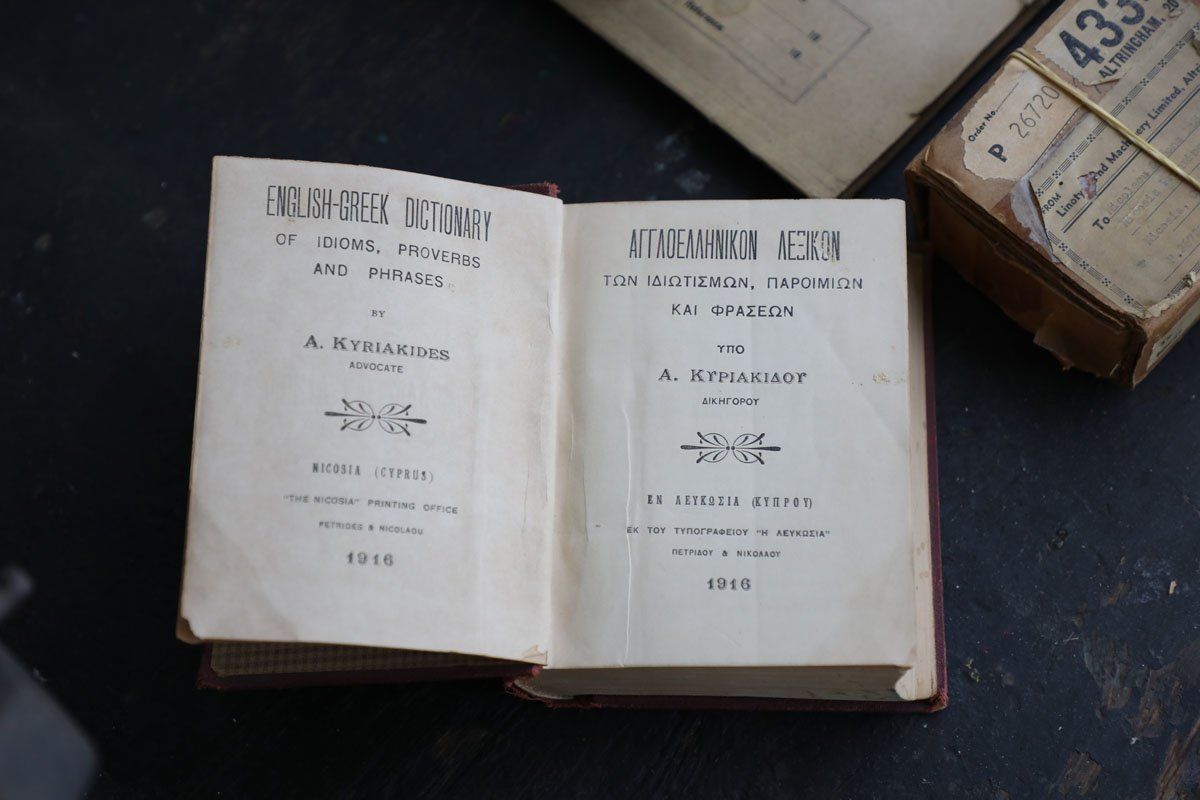
In this 106 year history, Nicosia Printing Works have produced historical documents and books, some of which formed part of a whole era. Pictured here is the Kyriakides dictionary (1910).
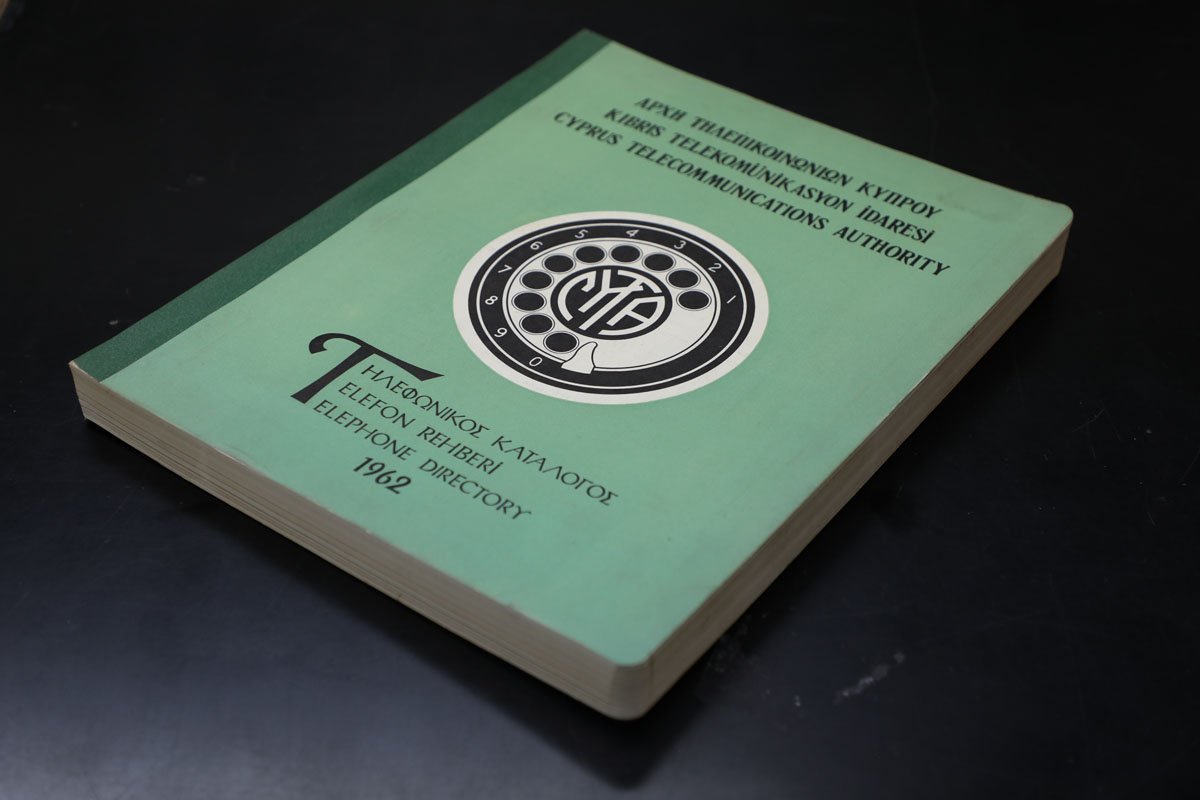
In 1962, ‘Nicosia’ printed the first CYTA phonebook in three languages.
Values, principles and heritage
- Family. Family comes first for the Nicolaou as the company declares-‘all the values acquired and followed from generation to generation are respect to others, developing relations and treating others like our own’.
- Passion. ‘We’re passionate about our work and what we do. We love our job so we see things from a different perspective and are in a position to care about our products as our own’.
- Quality. «There is no compromise about how things are done; there is only one way forward-they need to be perfect, as we are passionate about producing top quality works.
- Speed-deadlines. ‘Deadlines are important to us. We are tough on ourselves about the promises we give our clients. Deadlines however do not lead to quality compromises. Both have the same importance and are respected.
The following are the four timeless principles:
– Honesty
– Good industrial relations,
– Good client relations,
– Respect to clients.
The Cyprus pioneer printers
Nicosia Printing Works is the oldest surviving Printers in Cyprus. It was established in 1906 and essentially owned by the same family ever since. The Nicolaou family. It is owned by Nicosia Printing Works, Chr.Nicolaou & Sons Ltd, with the 4th generation of the family opting to continue the printing trade. Christoforos Nicolaou (3rd generation) and his son Nicos (4th generation), spoke to us about the history of the Printers and the Company, as well as today’s realities.
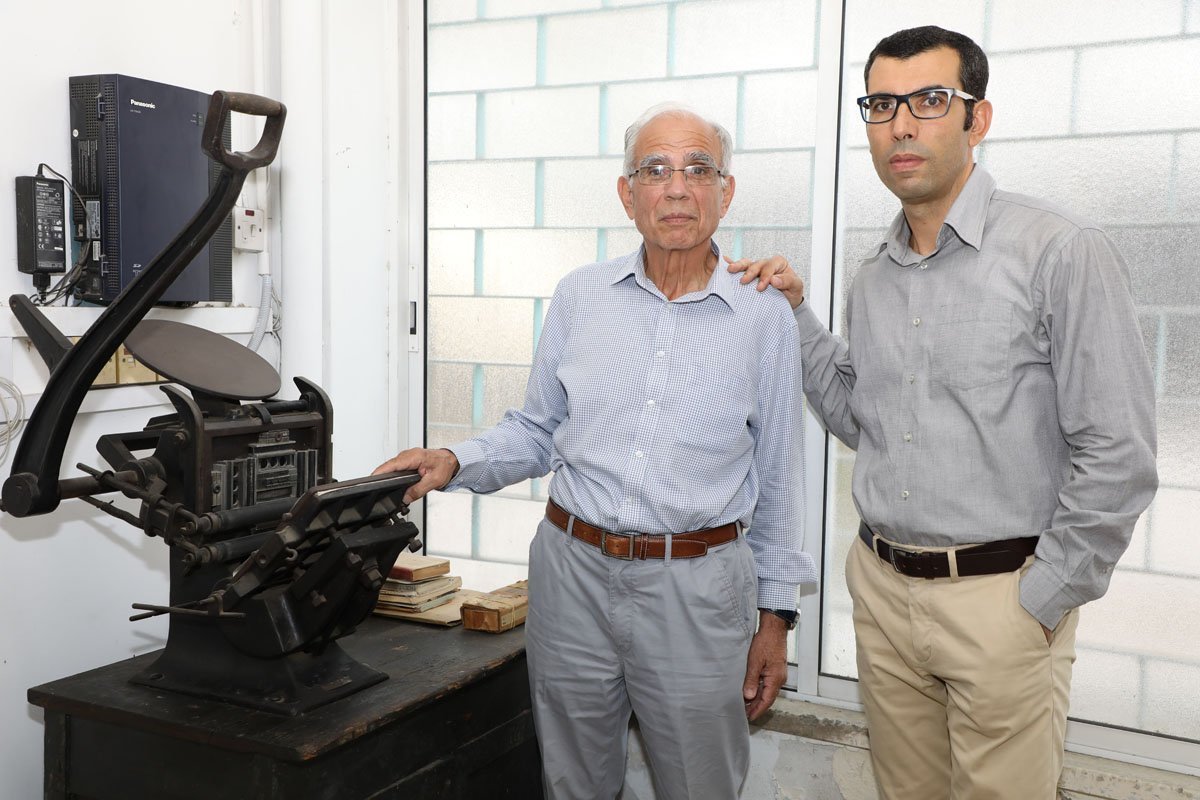
The 3rd and 4th Nicolaou generations are now at the helm of the company. Christoforos.Chr.Nicolaou is president and his son Nicos Nicolaou is CEO.
What’s it like heading out a company with such long history?
Ν.Ν.: It’s definitely a big responsibility, not just to the shareholders or owners, but also to the personnel working for the Group. This feeling of responsibility is surely much more intense when the head of the family company is the fourth generation and he is leading a business with a history of 115 years. Just note that companies who have survived so long are few and far between, not just in Cyprus, but globally. So as the leader of this company I owe it to my ancestors to keep it prosperous, as they did, with such hard work and talent.

In 1939, Nicosia Printing Works moved into its own offices at Ploutarchou road, off main Ledras street. The building stands to this way, in very good condition with all its equipment and could well be turned into a printing art museum.
What’s the biggest challenge for you?
Ν.Ν.: Keep the company going, continue printing as well as expanding to other activities within the Group. Launch into new sectors, so the business can survive for yet another century.
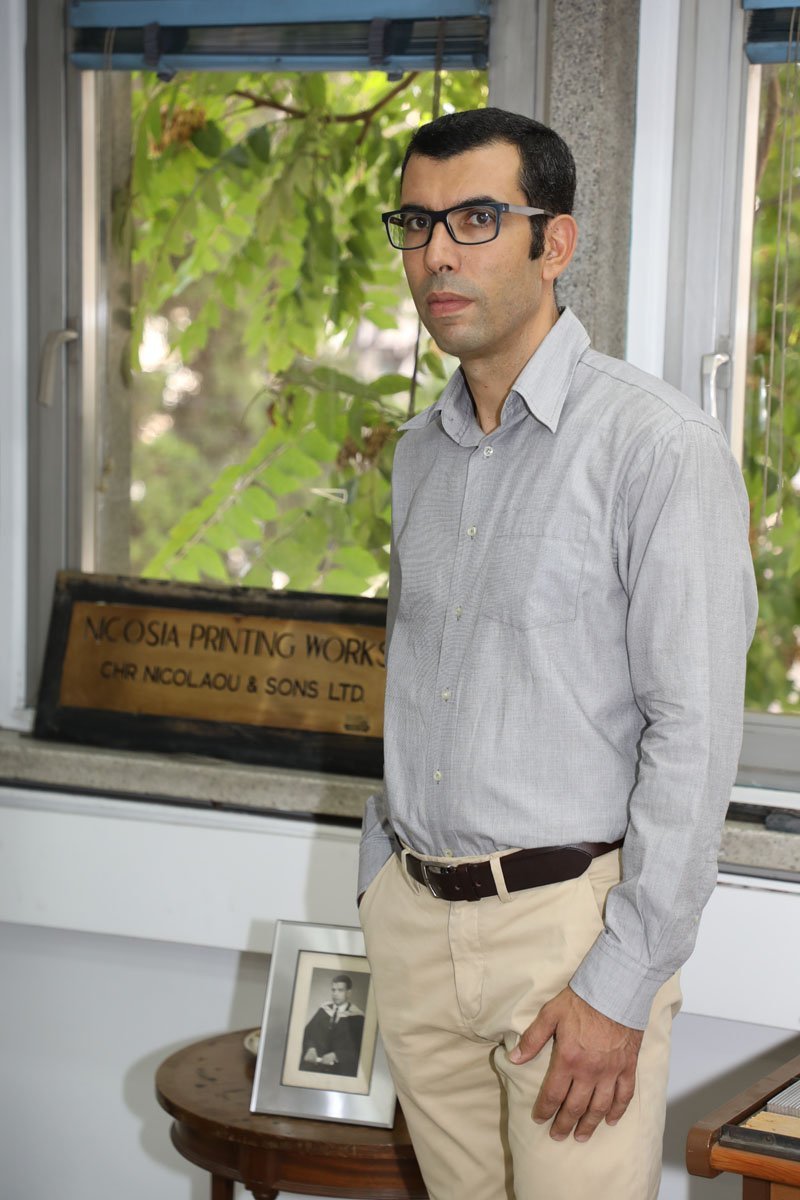
In 1998, almost a century after the business was established, the 4th generation comes to the fore. Nicolas Nicolaou, son of Christoforos.Chr.Nicolaou.
New Activities
Indeed I have seen new activities. Can you tell us about them?
Ν.Ν.: One of them is digital printing, that was introduced years ago. Τhe other is turning to the package, which at the moment we do not make but trade in. There is also something else that I really could not refer to at the moment, but we will be implementing it in the future.
What do you mean the package?
Ν.Ν.: The box. Packaging as a whole is a prosperous and developing sector. It could be something else than paper, for example the packaging could be made from other material, such as plastic.
But returning to your original question, I would say that what I really want to do is deliver to the 5th generation, a company with the same value as the one I took over. And as you do realise, this is not an easy task with technological advancements and printing on a downward trend. This is why we are trying to expand and provide more services.

With the establishment of Cyprus independence in 1960, as its work and activities grew, Nicosia Printing works, Chr.Nicolaou & Sons Ltd builds new modern facilities in the walled city of Nicosia, Dimitsanis road and develops into one of the most modern printers in Cyprus, as well as the wider region.
Yesterday and tomorrow
What does all this history mean for today and tomorrow?
Ν.Ν.: The success of this long standing course is no accident, but the result of two fundamental strategies; the first one is that throughout these years the company invested in the technology of the time and the second is adapting its products with those of the time. I can give you many examples. My grandfather replaced the first manual machines with semi-automatic, later becoming fully automatic. Now my grandfather, with the establishment of the Offset technology, which replaced Letterpress, brought in the first Offset machine from Switzerland in the 1960s. More recently we have included digital printers in the production. When it comes to new products examples, my father was the first to start producing cheques in Cyprus in the 1980s, later expanding to produce computerised documents.

Nicosia Printing Works is the oldest operating printers in Cyprus. It all begun in 1906 when Christoforos Nicolaou, just 20 at the time, established the business.

Nicos.Chr.Nicolaou, the oldest son of Christoforos Nicolaou, took over the business in 1958, along with his brothers Loukis and Tasos
Respect to the client
What is your DNA? What established it?
Ν.Ν.: I believe that one characteristic of our organisation that was passed on from generation to generation, is respect to the client. The right interpersonal relationship with the client is something of value. It has been established that the client is always willing to pay something extra, for fast effective service by polite individuals. That’s perhaps the reason why certain clients have stayed with us for decades.
Heritage
Mr.Nicolaou, you’ve been in the printing business and the company for decades…
Chr.N: I’ve been in the printing business as well as the company for 52 years and if I add the summers I spent at the business, working alongside any other employee, I would make that over 60 years.
What has stayed with you after 60 years?
Χρ.Ν.: That would be sheer hard work in this profession, both from ourselves, the employers, as well as the people working for us. Employees, along with owners and managers used to be a family in the old days. But that’s long gone. They used to work tirelessly for endless hours to finish a project. I even remember the foremen, Costas Malekkos and Costas Demetriou, whom we used to call ‘shepherd’, because he had indeed been a shepherd in his village and my grandfather brought him to the printers. Growing up he learned how to drive and became my grandfathers’ driver. I will never forget the excursions with the families of these people and the good relations we enjoyed with each other. As a family we had two cars and we would all squeeze into them for our outings.
Is this relationship with employees part of your business culture?
Chr.N: Yes, but it’s unfortunately changed today. Things are different now and there is no longer such a personal relationship, at least to a great degree. We are no longer so close. Society has changed in Cyprus and that affects the whole pyramid.
What have you kept as advice from your father and grandfather, both professionally and personally?
Chr.N. Hard work and honest. Hard work, because that’s the only way to progress and honesty, so that no employee or client will be treated unfairly
How about you Nicola?
Ν.Ν.: I can’t really say that I took things as advice on what to do or not to do. But working through the job and its process, I have learned that you need to treat the client fairly. To be right, honest, have integrity. You need to deliver on time and one the quality the client clients. As far as our staff is concerned, I want to be as close to them as possible and I strive to do that. But it’s not easy because as my father said, people have changed. For example, you need to keep your distance from certain employees, maintain daily control and be aware of what they’re doing, as decency is a dying breed.
Memorable parties
Do you remember any happy incident?
Ν.Ν.: To be honest, I’ve really missed the company’s New Year’s party to thank its staff, a tradition that stopped following the 2013 financial crisis and now covid has made it impossible. But we really should bring it back and at some point it will return. It was a gathering without owners, managers or workers. We were all there to have a good time, with no labels or positions.
Χρ.Ν.: The atmosphere was incredible. There were no bosses and employees. We were all equal.
Major shrinking
How has the 2013 financial crisis and covid affected you?
Ν.Ν.: The financial crisis of 2013, the covid pandemic and the rapid development of digital communication have admittedly led to a major shrinking of print demand. And we have the examples attesting to that. There’s been a reduction in the use of writing materials that we have been replaced by email, the newspaper has become obsolete and people get their information from internet media outlets, while paper invoices have been replaced with digital documents. Even cheques, which had been best seller products for decades are fast becoming extinct. There are numerous other examples.
Typography has evolved significantly in a century due to technology in the sector itself and the fact that paper is losing the battle with intangible ‘typography’. How do you see the future?
Ν.Ν.: I believe that typography will be restricted to printing books as well as selected publications, nothing more. So our most important decision in the recent past had been to expand the group’s activities in packaging, with new products to be introduced in the near future.
I do hope a fifth generation will follow. That said, it is certain that the activities of the group in the 5th generation era will not just be printing, but other sectors too, such as utilising the Group’s immovable assets portfolio.
The family’s unsung heroes
We left out quite a significant part. The women of the family. And usually women stand behind every successful man. What could you tell us about your grandfather, mother and wife?
Chr.N: We were lucky enough to have women at our side that understood and supported us. They recognised and valued all of our efforts. Grandma Katina, grandfather Nicola’s wife had eight children to raise in really tough times. She had to be strong at home, the ‘pillar’ so to speak, in order to raise them right, as well as giving my grandfather the time to create his own business, build his printing works company. And she achieved it.
My mother Chloe was a mild mannered woman, but quite dynamic in nature too. My father worked really hard but did find the time to get involved in his children’s lives. He wanted them to receive a better education than he did. That’s what my mother did as well, they pushed us into educating ourselves.

Christoforos Nicolaou was married to Katina and they had three boys and five girls.
You had the full support of your own wife as I understand it.
Chr.N: Absolutely. I’ll tell you how many hours I worked, particularly after the 1977-78 period when business picked up. I started at 7 in the morning and went home the next day at two past midnight. I slept for just two hours and returned to the printing shop to prepare. All employees worked alongside me of course. It was quite a demanding period and without a woman taking over at the house, it would be impossible to get all this work done.
Nicola, anything to add?
Ν.Ν.: In situations such as our own, we need the support of our wives. We are out of the house for most of the day, including weekends. So the wife’s support carries its weight. I would say that the women of the family have always been the unsung heroes.
Historical personalities
Christoforos Nicolaou (1886 – 1958).
He was born in Strovolos in 1986. His father was Nicolas Christoforides from Lakatamia who was into the hotel business in Nicosia and had two other sons.
Following his basic education, Christoforos Nicolaou went into the printers’ trade very early. He had eight children with his wife Katina, three boys and five girls.
He was hard working, a fast learner and diligent, managing to teach himself, both in academic terms and intellectual cultivation. He spoke and wrote in English and French, besides his mother tongue.
Nicolaou was a progressive, conscientious man, entrepreneurial, but also of strict moral principles, always reliable and honest to his associates, that’s how he forged such a good name, being truly appreciated by both his numerous clients as well as his printing office staff.
He passed away in 1958.

Nicosia Printing Works is the oldest operating printers in Cyprus. It all begun in 1906 when Christoforos Nicolaou, just 20 at the time, established the business.
Nicos.Chr.Nicolaou (1913 – 1994).
He was the oldest son of Christoforos Nicolaou and is considered the natural successor as director of the business, being the soul of Nicosia Printing Works from 1958 through to the 1990s.
He was born in Nicosia in January 1913.
Following primary school, he went on to the Pancyprian Gymnasium and soon after graduation in 1930, he took over duties at the Printers management, next to his father Christoforos. He then received a certification in Accounting and Office Management by correspondence from the International Correspondence Schools, London.
In 1935 he married Chloe Constandinides and had three children; Christoforos, Alexandra and Catherine.
Nicos Nicolaou was a well mannered man, mild and modest, a hard working individual, honest, conscientious, an impeccable family man.
During his time, the company was upgraded and fully modernised with the latest equipment, gaining a reputation as one of the most artistic and quality printers in Cyprus.
He passed away in 1994.

Nicos.Chr.Nicolaou, the oldest son of Christoforos Nicolaou, took over the business in 1958, along with his brothers Loukis and Tasos.
Efraim Petrides (1876 – 1919).
He partnered up with Christoforos Nicolaou to establish Nicosia Printing Works in 1906. He was the owner of the newspaper ‘Kypriakos Phylax’ (‘Τhe Cyprus Keeper’) and was prosecuted by the colonialists for the content of his articles during British rule.
He passed away in 1919.
The company’s big complaint
The Nicolaou family have taken issue with the way that the state treated their proposal on the future of the building that housed the old printing shop of the Nicosia Printing Works, Chr.Nicolaou & Sons Ltd. Christoforos.N.Nicolaou was the one who vocalised this complaint, so we asked him about it.
The company’s old printing shop in the walled city of Nicosia is standing there, remaining unutilized, in spite your best efforts to turn it into a typography museum.
Chr.N: The old printers building on Ploutarchou road has survived almost unscathed with all its equipment and the various production stages, such as typesetting, phototypesetting (Linotype), Monotype, printing and completion and will make up for an amazing typography museum, in which the evolution of the printing process over the last 90 years, will be there for all to see. And yet it remains unutilised. All our efforts have fallen on deaf ears, no response, either from the government, the Nicosia municipality or anyone else.
We also believe that the building could well be turned into an annex of the University of Cyprus Architecture School.

In 1939, Nicosia Printing Works moved into its own offices at Ploutarchou road, off main Ledras street. The building stands to this way, in very good condition with all its equipment and could well be turned into a printing art museum.
We really don’t understand why the government would not want to make something out of the old printing facilities. The building has kept its beauty and picturesque façade, with the business sign surviving since my great grandfathers’ time. The machinery and material there could actually make it an amazing museum but also a multi-purpose area for arts events. I really do hope that some people will see the positive side, so this part of history will not be lost for good; it’s not just the history of our own company, but printing in Cyprus, as well as the country as a whole.
Address.
Dimitsanis 8, 1070
Nicoia, Cyprus
Telephone.
+357 22 668205
